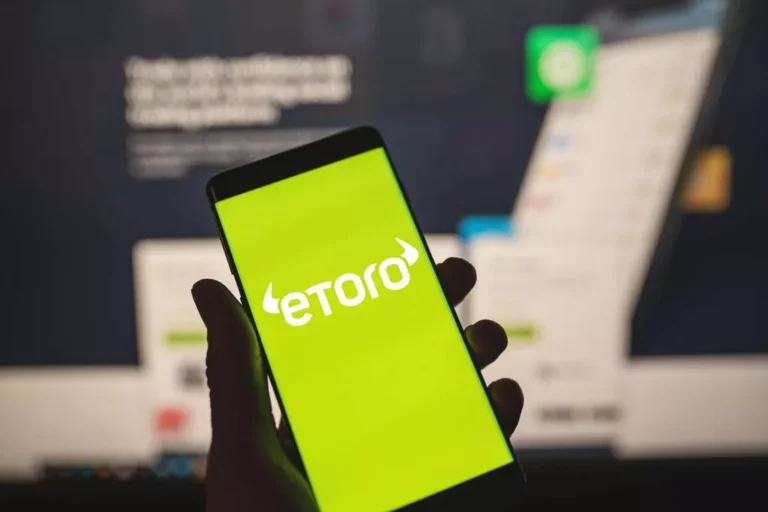Remember that whether you employ a custodial or non-custodial pockets, you need to at all times be cautious and observe greatest practices to protect your funds. People can ship cryptocurrency to considered one of your addresses generated by your wallet’s public key. Control & entry of the private key is with the third party or the custodian. Creating a non-Custodial crypto pockets is an in depth and complicated course of. So, it’s advisable to consult with a reputed Blockchain development company for growing it. The prime purpose why Non-Custodials are gaining an enormous momentum is because they provide customers a person access to their funds.
On the opposite hand, nearly all of custodial wallets let you create a brand new wallet without any registration or verification course of. To do so, you solely want to go to their web site or install their official app and create a free wallet within a couple of minutes. In contrast, transactions utilizing non-custodial wallets are instantly mirrored on the blockchain in real time. Here, the wallet interacts directly with the blockchain community with none want for third-party authorization. While we contemplate the non-custodial wallets, the absence of intermediaries plays a vital position in faster wallet-based transactions.
Custodial Wallets Vs Non-custodial Wallets
The custodian of the personal key, on this case a crypto trade, is tasked with “signing” transactions using the personal key to make sure they’re accomplished appropriately. Custodial wallets are typically simple to hook up with decentralized apps (dApps) and monetary opportunities like staking or yield farming. Custodial wallets are nearly all the time web-based, and are often supplied by centralized crypto exchanges like Coinbase. Most exchanges’ interfaces are designed so users by no means even have to immediately interact with their wallets. This user-friendliness means custodial wallets are typically preferred by newcomers, to whom the comfort issue of not having to handle their non-public key themselves is a big benefit. A custodial wallet service (like Coinbase or Kraken) holds on to the non-public key, so it’s liable for safeguarding a user’s funds.
A good instance of this is Freewallet – a custodial pockets that helped customers save round $500,000 on network charges again in 2019. A Custodial Wallet is defined as a wallet during which the non-public keys are held by a third party. Meaning, the third get together has full control over your funds while you only have to offer permission to ship or obtain funds. Choosing either a custodial or non-custodial wallet should depend in your needs.
Drawbacks Of Custodial Wallets
In distinction, Non-custodial wallets are suitable for one in search of complete management and ownership over their private keys. Ultimately, it is dependent upon the users to choose the one which is best for his or her use. Certainly, this sort of pockets is made out there by crypto exchanges or custodial wallet providers in the type of an app. After the person’s login to their pockets account, the pockets provider interface is leveraged to operate their funds and transactions. Yes, the BitPay Wallet is a cellular non-custodial crypto pockets which allows customers to easily purchase, retailer, swap and spend their crypto from a single easy-to-use platform.
It is important to keep this data safe to get well your property in case you lose your wallet password. When researching custodial pockets suppliers, guarantee they’re regulated, and learn how your private keys are stored and whether or not there is insurance coverage. Even if you lose your cryptocurrency trade password, you must have the ability to entry your account and property by contacting customer support. If you utilize a non-custodial wallet, you are liable for maintaining your cryptocurrency protected.
It’s a good selection for seasoned merchants and traders who understand managing and safeguarding their private keys and seed phrases. Deciding between a non-custodial and custodial crypto pockets sort is basically a matter of deciding which options in a pockets are most necessary to you. Custodial wallets are usually most well-liked by newcomers and those that value the set-and-forget nature of managing their crypto by way of an exchange or other centralized wallet supplier. Non-custodial wallets are for these customers who want to exert more control over who has access to their funds.

One of the primary variations in cryptocurrency wallets is whether or not they’re custodial or non-custodial. In this blog, we’ll discuss the differences between the two kinds of wallets. However, earlier than we dive into the distinction between custodial and non-custodial wallets, let’s first outline what cryptocurrency wallets are. So, even if you lose your private key or forget the mnemonic phrase, it is easy to regain entry to your wallet and your stored funds. Most custodial wallets require customers to undergo id verification exercises.
Custodial wallets also give customers peace of thoughts that a misplaced or forgotten password doesn’t imply they lose entry to their funds. Most of the time suppliers or exchanges can merely reset your password with a couple custodial vs non custodial wallet of security questions. If a non-custodial wallet holder loses their private key, their funds could probably be unrecoverable.
What Are The Pros And Cons Of Non-custodial Wallets?
These wallets differ from one another primarily based on their diversified features, such as security, person expertise, restoration choices, and more. A cryptocurrency pockets is a software program or hardware medium that allows you to work together with a blockchain network. If you like to maintain issues easy and don’t thoughts a 3rd celebration between you and your crypto, custodial pockets supplier choices are plentiful. In fact, most corporations providing custodial wallet providers are well-known and established crypto exchanges like Coinbase, Kraken and Crypto.com. A non-custodial wallet, or self-custody wallet, is where the crypto owner is absolutely responsible for managing their own funds.

For example, it can be written down on paper and saved in a secure place or typed into a doc on a pc and stored securely on a hard drive in a protected location. The consumer does not want to fret in regards to the technical particulars of storing their cryptocurrency, because the third party manages it for them. This makes it an ideal possibility for beginners https://www.xcritical.com/ who’re new to cryptocurrency and will not be acquainted with the technical aspects of managing their wallets. In this article, we dive deeper into custodial and non-custodial wallets. For a quick guide on whether or not users ought to maintain their own crypto key versus letting someone else take responsibility, read on.
Custodian Of Personal Key
In different words, you’re placing your faith in a third get together to take care of your funds and provides them back to you when you determine to trade or transfer them someplace else. A custodial wallet reduces private accountability however necessitates faith in the custodian, sometimes a cryptocurrency exchange, that holds your funding. Since the overwhelming majority of centralized cryptocurrency exchanges use non-custodial wallets, purchasers entrust the change to carry and manage their funds. Generally speaking, a virtual belongings pockets is a car, the principle exercise of which is to help its person to retailer their digital assets (in certain instances, fiat currency).
For occasion, the security of your custodial pockets is totally depending on the safety features applied by the crypto exchanges. As a outcome, any security glitch in their system may result in pockets hacks that cause asset loss. Self-custodial wallets are highly protected if the user follows greatest practices for wallet security and employs strong safety measures. First be completely certain to create a back-up of the 12-word recovery phrase, when you lose this phrase you will not be able to access your funds in the probability that your gadget is lost or stolen.
Non-custodial wallets give you complete control over your keys and funds without a third-party guardian. Furthermore, non-custodial transactions are sometimes quicker as a end result of there isn’t any need for withdrawal approval. If you don’t use a custodian, you keep away from paying extra custodial fees, which could be expensive depending on your service supplier. However, you are solely responsible for your seed phrase and personal keys’ safety when using these wallets.
Recent events in the crypto industry have underlined the risks of custodial wallets. If the exchange holding your funds fails, mismanages belongings, or will get hacked, you could lose every little thing. Self-custody, where you may be your individual custodian, is turning into the favored strategy for users who need real possession of their crypto. Using a custodial wallet requires a substantial amount of trust within the institution, which highlights the importance of doing all your homework and only using a trusted and dependable trade. Part of that course of should involve inquiring whether or not they’re regulated, how they hold your non-public keys safe and whether or not they provide any insurance coverage protection. With a custodial wallet, a person initiates a transaction by way of their platform of choice and selects a wallet handle to which they’d like to send funds.
